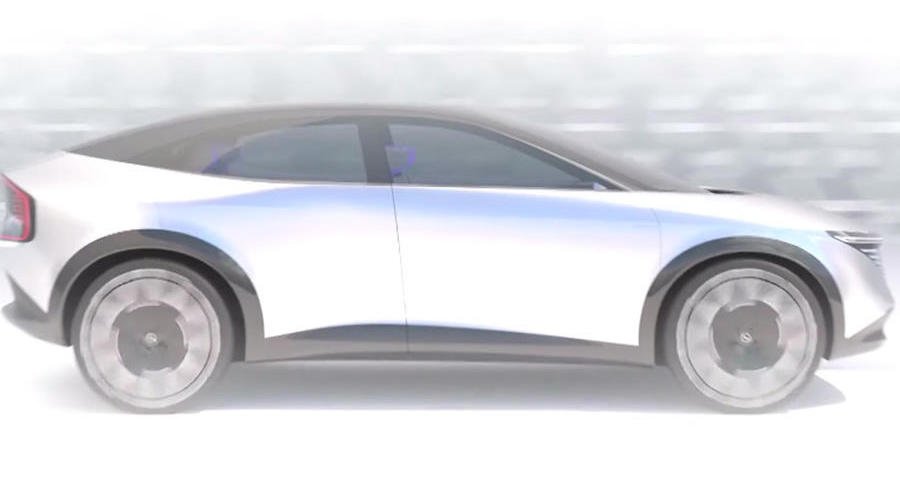2025 Nissan Leaf to become compact SUV for third generation

The new electric crossover model to be built at Nissan's Sunderland factory will be the replacement for the Leaf, the firm’s Europe boss, Guillaume Cartier, has confirmed.
Plans to build a new crossover in Sunderland as part of a huge £1 billion investment in the plant to secure its future were announced back in July. That model was expected to be the Leaf’s replacement, something confirmed today by Cartier.
The Leaf replacement will therefore switch from a hatchback to a crossover bodystyle – and be based on the Renault-Nissan-Mitsubishi Alliance’s CMF-EV platform – in around 2025.
By then, Nissan’s core future model line-up will include five models, all of them electrified crossovers: the Juke, Qashqai, Ariya and X-Trail, plus the Leaf replacement.
The Japanese car maker will therefore not solely develop any more conventional models in Europe, such as saloons, hatchbacks and estates. However, it will turn to its Alliance partners, Mitsubishi and Renault, to source underpinnings for other segments, chiefly a small car to replace the Micra.
“We will look to the Alliance for a full line-up and powertrains,” said Cartier. “One topic that is still open is the entry [the Micra-sized replacement]. Key point is how we offer something from the Alliance with the Nissan brand.” He added that making it profitaby was the main issue, and that the car “absolutely” would be an EV.
The focus on electrification means that Nissan will not invest in internal combustion engine technology to make it EU7 emissions compliant, regulations due to come in Europe in the middle of the decade.
“Strategically, we bet on electrification,” said Cartier. “If we invest in EU7, the ballpark cost is about half the profit margin per car, around €2000 you would have to pass onto the customer. So we bet on EV, knowing it will decrease in cost.”
Nissan expects 80% of its sales to be full EVs by 2030 and by 2025 will have electrified its entire range with either full EVs or its E-power hybrid option.
Nissan CEO Makoto Uchida confirmed that the company will not be investing in hydrogen technology, instead choosing to focus on battery-electric vehicles. “Our competitors have many solutions for technology,” he said. “For us, we decided EVs. We used to have hydrogen technology at Nissan, and maybe in a different world, we still would. But so far, this [EVs] is our asset, and what we want to be on."
Uchida also confirmed that the future of sports cars at Nissan in Europe is still uncertain due to the needs of electrification. However, he said the company remains a supporter of Formula E and will continue in the championship because it is a great way of promoting Nissan’s wider electric ambitions.
He responded to suggestions that Nissan has been slow to capitalise on the impact it had in the world of EVs with the launch of the Leaf a decade ago by saying that he will be revealing plans for Nissan’s next era of electric cars and electrification later in the autumn.
On the shortage of computer chips impacting production of cars, Uchida said that "step by step, it’s getting better” but that the crisis is far from over and it will rumble on for some time. The crisis has shown Nissan that it must "adapt to new ways of working with suppliers [and] make partnerships stronger”.
Related News
